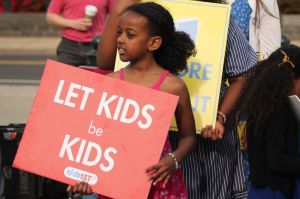Conflict Expert Describes School Detention as a Form of Violence
The practice of letting naughty children be left behind in school as a form of punishment has been enforced for many generations. But now, a conflict expert considers placing disruptive pupils in isolation in a classroom as a form of violence by "perpetuating a domination culture."
This was the point made by Maria Arpa at the Festival of Education at Wellington College, Berkshire, U.K. The chief executive of the Center for Peaceful Solutions was given a three-year grant by the government to develop methods of resolving conflicts which she now promotes in schools and prisons.
Arpa stressed that traditional forms of punishment make violence acceptable. She said that punishing students is just violence hiding behind another term. She added that isolating errant pupils isn't the right way to improve their behavior as it forces them to do the right thing; otherwise, "someone bigger than you will get you for it."
Detention and other punishments, such as isolation and exclusion, sends out the message to students that "if you are bigger than me and you believe you have right on your side, you can hurt me." This method, she noted, produce "nice, dead people" who comply with authority but lack independent thinking.
Arpa's approach to disciplining students has been earlier backed by Canadian experts who called for the ban of isolation rooms in schools. Jacqueline Specht is director of the Canadian Research Centre on Inclusive Education at Western University said these isolation rooms are a form of indignity to students.
"They tell students that they are bad people and need to be punished. The punishment destroys any attempt that has been made to develop a healthy relationship with that child," she said. "Punishment does not teach children more socially desirable behaviors. If a child could monitor and self-regulate, he/she would," she added.
However, Arpa's views were challenged by fellow panelists including the government's behavior adviser, Tom Bennett, who said: "Boundaries set with love are for pupils' benefit. It's not violence, it's part of a wider diet of helping them." He also said there was a "serious national problem with behavior."



























